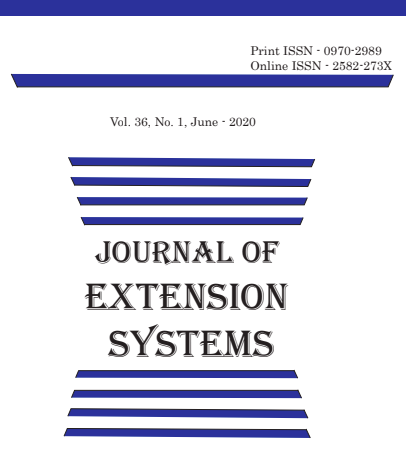Effectiveness of Beauty Culture Trainings towards Sustainable Livelihood
DOI:
https://doi.org/10.48165/JES.2021.37104Keywords:
Effectiveness, Utility, Coverage, Health, Personality, Beauty services, PMKVYAbstract
Sustainable livelihood emerges at the intersection of development and environmental studies to offer a new way to think about work, especially the work of vulnerable populations. The term reflects a concern with extending the focus of poverty studies beyond the physical manifestations of poverty to include also vulnerability and social exclusion. Trainings help them in securing a better livelihood. Beauty culture is one of such avenues for self-employment, which require less of basic and technical education, minimum infrastructure and moderate financial needs. The study was conducted in Hisar district in Haryana state purposively with 120 respondents selected randomly from four training centers under PMKVY. Effectiveness of training was assessed in terms of utility and coverage. Results showed that maximum utility score was for hygiene in makeup aspect, good grooming in personality development and makeup in beauty services. Also, it was found that age, education and monthly income of family were found to be significantly associated with effectiveness of training. Also, it was found that training was considered highly useful in providing knowledge and skill on makeup.
Downloads
References
Downloads
Published
Issue
Section
License
Copyright (c) 2022 Journal of Extension Systems

This work is licensed under a Creative Commons Attribution-NonCommercial-NoDerivatives 4.0 International License.

